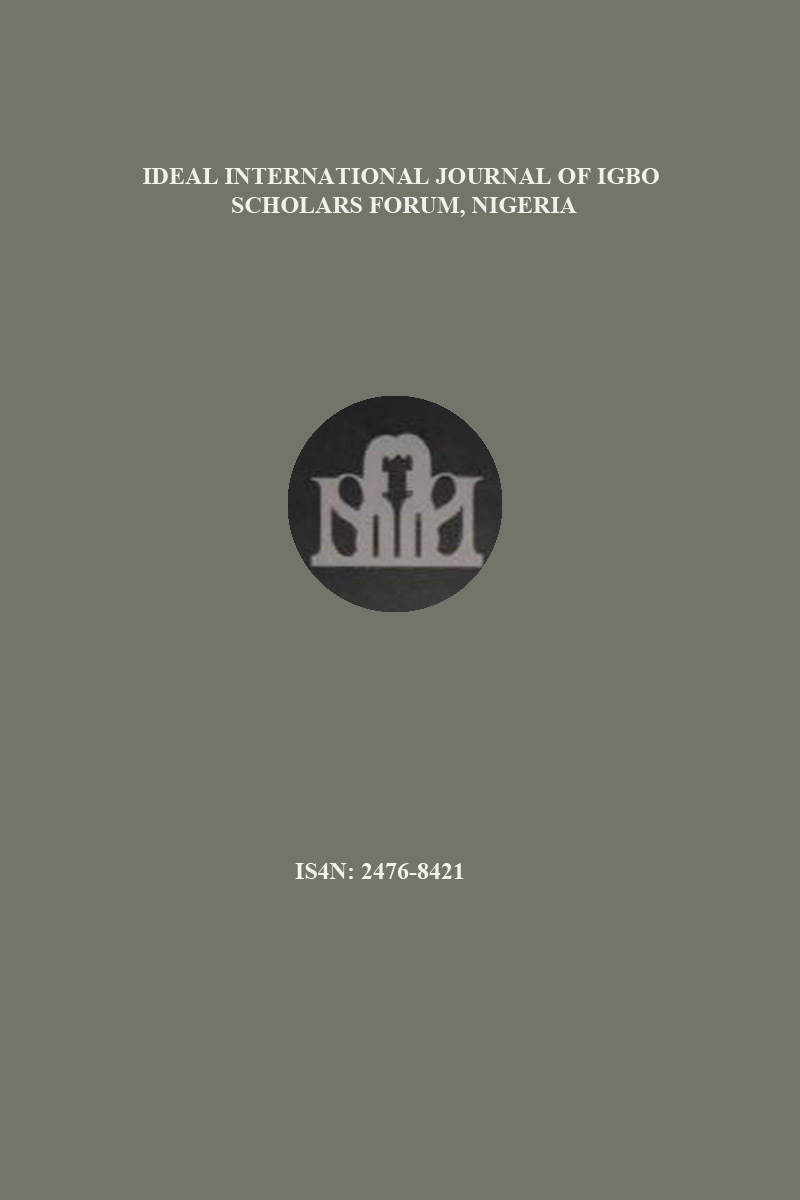GLIMPSE INTO ROMAN CATHOLIC EDUCATIONAL EFFORTS IN ABAKALIKI, 1922—1982
Abstract
Roman Catholicism entered Southeastern Nigeria a full 22 years from its establishment in the Southwest. In late 1885, Father Joseph Lutz of the Holy Ghost Fathers Congregation led Father Horne and Brothers Hermas and Jean-Gotto into establishing the Catholic Faith on the Southeastern part of Nigeria. They got to Onitsha on the Niger Coast on 5 December, 1885. Upon arrival, the French Spiritan missionaries proceeded to the palace of the Obi of Onitsha, Obi Anazonwu to discuss the object of their arrival and to seek permission and cooperation of Royalty to carry out their mission. Among other things, Father Lutz had told the Obi and his chiefs that they had “come to live near you, to open a school, to teach your children and your good people, all who may wish to come and learn knowledge from the white men of Europe.”1 With this, the early Catholic missionaries went on to establish in Onitsha the first Catholic school inIgbo land which had a total of forty pupils comprising of freed men and slaves, adults and children. Thus, from the earliest beginnings of the Catholic presence in Igbo land, the setting up of schools for the education of the people was central to their mission. All through their missionary activities in the area, the Roman Catholic missionaries have made the establishment of schools their signature tune and the principal strategy for evangelization. In Igbo land the success and impact of the Catholic Schools in both the dissemination of western education to the people and their conversion to Catholicism have been widely acknowledged. This has led to Igbo land being reckoned as the bastion of Roman Catholicism in Nigeria and the most successful story of Catholic missionary effort in Africa. It is also such that in the discussion of the education of the Igbo people, the story will not be complete without the acknowledgement of the contribution of the Catholic Mission. As D. B. Abernethy said, “All the Mission groups in Southern Nigeria were interested in educating the common people, but none served this cause more energetically than the Roman Catholics of the Eastern Region.”2 This paper is a glimpse into the activities of the Catholic Mission in the educational wellbeing of the Abakaliki people. The study sourced its data from both primary and secondary sources and adopts the narrative method of historical writing.


